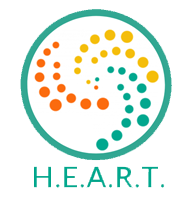Reducing harm from addiction while maximising academic opportunities
18 October, 2022
Peter Da Silva is employed as a Harm Reduction Specialist. Upon completion of his BA at Teesside University, which he completed while in recovery himself, he reflects on several years of personal growth, and seeing other students learn about addiction recovery.
I imagine my start to university was very different to that of most people. But the result has worked out great. Right now I’m waiting for one assignment to be marked, which will be done early this month, and then I’ll graduate. I’ve already been accepted onto a Master’s Degree in Forensic Psychology, the start date of which will be next year, as I’ve decided to defer it for now.
Two days out of rehab when I began an Access Course, more than four years ago now, I didn’t feel judged one bit when I told my story. We did an icebreaker, as a group, and as I was so used to talking about my journey in the rehab, I did exactly the same in the classroom. Not the kind of story you expect to hear on your first day on any course!
But straight away, I felt accepted, and I must say that experience has been the same throughout my studies. Later moving on to study the degree, my peers and tutors have been so supportive. I started to get on local news quite regularly, and my tutors would play that stuff on lectures on the screens.
There were times when students would go out for drinks, or to celebrate something, when I felt a little out of place. But overall my past wasn’t something to be ashamed of here, and I was proud to be a person in recovery.
That said, I do feel that the work we do at the university goes under the radar a bit. It’s not shouted about, and like a little secret, so there’s certainly some stigma surrounding students in recovery. So whereas I am accepted for who I am, the idea that there are enough students who need similar support within one university seems to be rejected. I certainly think more could be done to improve this.
Some of the students I’ve come into contact with are yet to recognise they have a problem, which in itself is another barrier. They might be struggling to stop taking prescription drugs, like codeine or pregabalin, or drinking every day, and yet they identify differences between themselves and others - rather than noticing similarities.
For instance, they might compare themselves to me, an ex heroin and crack cocaine user, and a once-homeless person, and think “I’m not like that.” While at the same time they’re visibly distressed about their own use, and asking me questions about it - so they know something’s not right.
At the end of the day, it doesn’t matter what you’re using though. If it becomes addiction, the rock bottom is going to be exactly the same. Negative inner thinking, suicidal feelings, depression and darkness. The same place a heroin addict or alcoholic would dig down to. And with it comes the potential of lying to others, hurting their feelings, and all the shame that comes with it. In my opinion, this is the same, no matter what kind of drug is involved.
This is where universities being more open about recovery opportunities could help. Those affected could feel less judged, and more likely to confront or accept what’s happening. For me, being in that positive place, and not using or wanting to use, enhanced my university experience. I saw people use drugs throughout their time here, but I can’t imagine it was an entirely positive experience for them.
As a harm minimisation specialist in the rest of my work, outside of university, the approach is more about keeping people alive. Basically, if a person is dead - then they can’t recover. So I give out clean kit, including needles, and hand out naloxone, which reverses the effects of an opiate overdose. So although I’m a person in recovery myself, and I do promote this, the work is more about keeping people safe. We work with nurses, who can tend to wounds, and I will also try to get homeless people into supported accommodation and housing. And if any of them find recovery in the meantime, then all the better.
But it’s important to remember that none of the people I meet in my work, or the people you see in the street, started off there. They all had their own journey which led them there, just like me. Better awareness about addiction, and education, could support harm minimisation work in the long run.
And universities do have a part to play in that. It’s why the work we do on campus is and always will be important, as well as the other services we provide via Student Space. Hopefully, we’ll see more of these groups and services appear at universities in the future. And that they are visible, to those who may need them, will be key.
